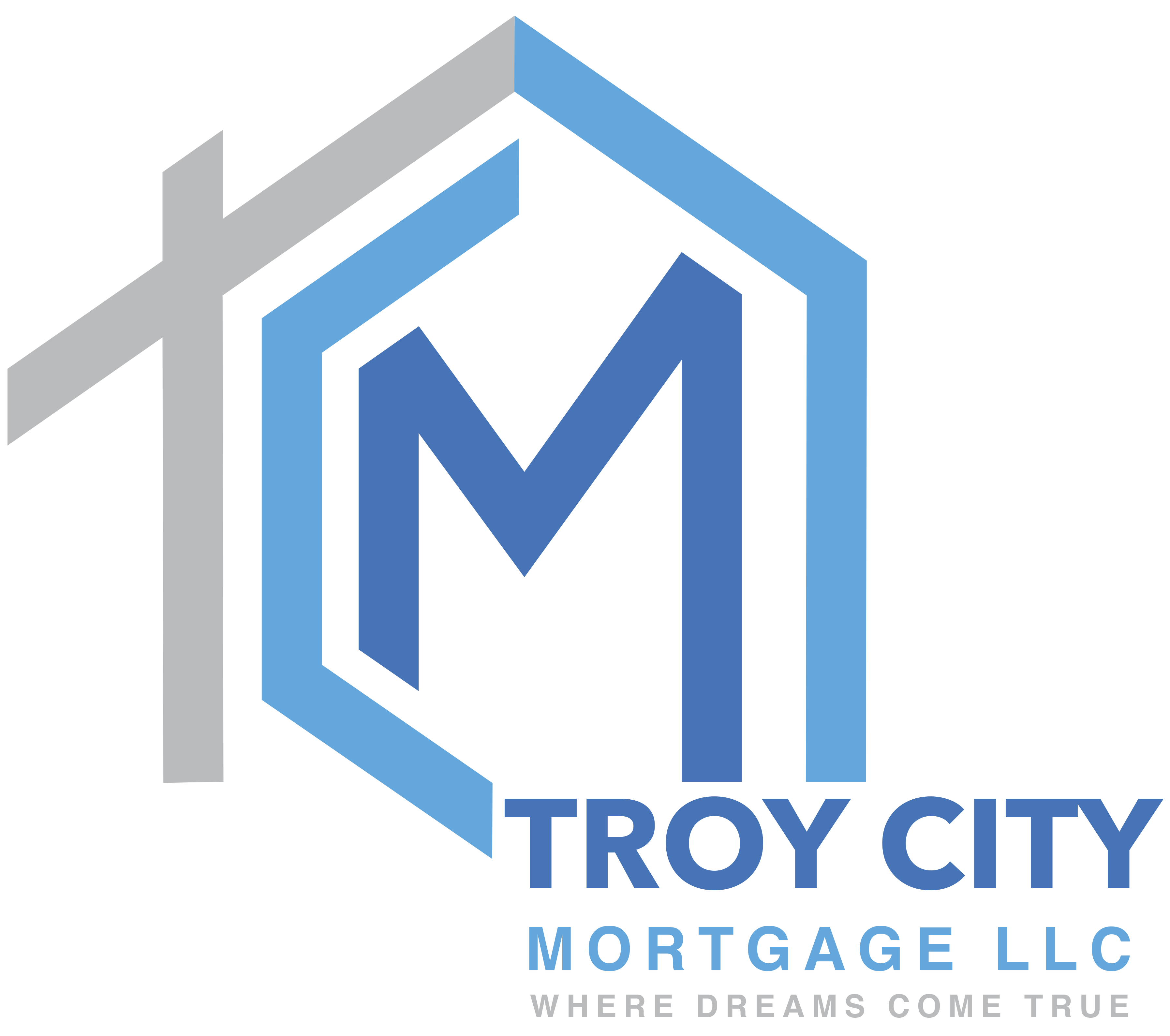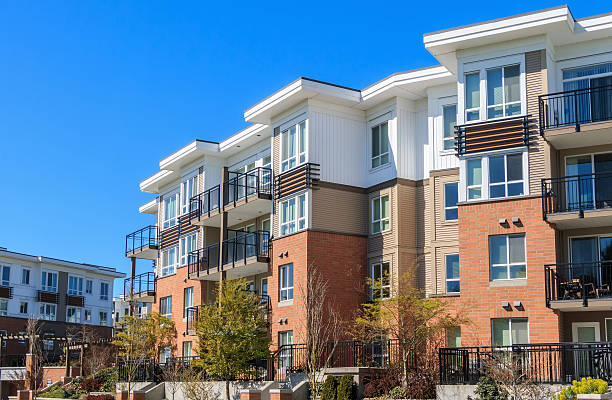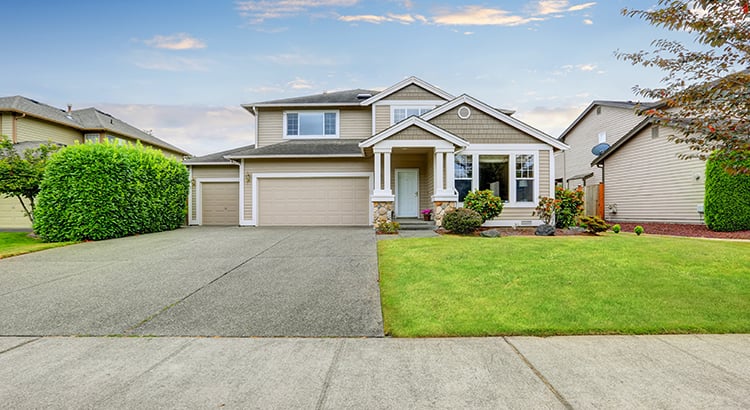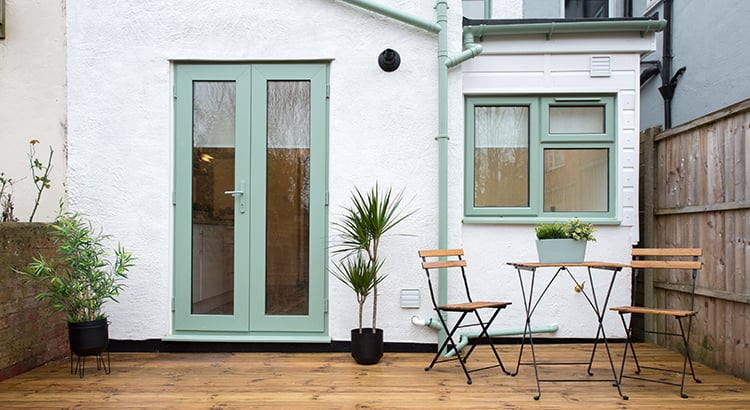Are you having trouble finding a home that fits your needs and your budget? If…
Four Things That Help Determine Your Mortgage Rate
No matter when you’re ready to buy a home, getting pre-qualified for a mortgage should always be your first step. During this process, a lender will examine your finances and credit history to determine what type of mortgage program you will qualify for. However, right now if you’re looking to buy a home, you are likely aware of rising mortgage rates and want to secure the lowest interest rate possible for your home loan. Over the last couple of years, that was easier to do as the housing market saw record-low mortgage rates, but this year rates have risen dramatically. If you’re looking for ways to combat today’s higher rates and lock in the lowest one you can, here are a few factors to focus on to put you in the best possible position.
1. Your Credit Score
Credit scores measure your ability to manage debt, and that can play a big role in your mortgage rate. The saying “knowledge is power” is definitely true when you’re applying for a mortgage. It’s important to know your credit score because it will determine your mortgage rate and which loan programs you’re eligible for. You’re more likely to be successful if you apply for mortgages that are within your credit range.
As Freddie Mac explains:
When you build and maintain strong credit, mortgage lenders have greater confidence when qualifying you for a mortgage because they see that you’ve paid back your loans as agreed and used your credit wisely. Strong credit also means your lender is more apt to approve you for a mortgage that has more favorable terms and a lower interest rate.”
It’s also important to understand how much loan you can afford based on your current income. This means understanding whether or not your debt is eating up all the money you’ll need to make your monthly mortgage payment. At Troy City Mortgage, our experienced Loan Officers can look over your financial situation and make recommendations that make sense for you.
Simple ways to build & improve your credit
There are everyday things you can do to build up your FICO score to get the beset possible mortgage rates. Here are just a few things you can do:
- Always pay utilities & rent on time. Your electric bill, cable, auto insurance, phone, and even your rent payments can be reported to all three major credit bureaus. If you don’t have credit established yet, start by paying all utilities on time for a year, even if it’s just the minimum due. This will help establish a record of financial responsibility. For those with less than perfect credit, Experian also offers a “boost” to your credit based on paying your bills on time.
- Pay all credit card and loans on time. From your car payment to your credit cards, making on time payments is the easiest way to ensure a healthy credit score.
- Keep balances low. Keeping your available credit at 30% of the limit or lower is preferable
- Limit credit pulls. Applying for multiple credit cards, loans, and other types of financing can be a red flag and can lower your score. One of the advantages to working with a broker like Troy City Mortgage is that we pull your credit score once and shop around multiple lenders for you to get you the best deal.
Any of our local, experienced Loan Officers would be happy to discuss your financial situation (things like your income, credit history, debts, etc.) and develop a plan to help you own a home.
2. Your Loan Type
There are many types of loans, each offering different terms for qualified buyers. According to the Consumer Financial Protection Bureau (CFPB):
There are several broad categories of mortgage loans, such as conventional, FHA, USDA, and VA loans. Lenders decide which products to offer, and loan types have different eligibility requirements. Rates can be significantly different depending on what loan type you choose.”
Let’s take a look at some of the types of loans available to you.
Conventional Mortgages (Fixed-Rate and Adjustable Rate)
If you plan to stay in your home for the long term, a consistent payment that never changes can help you prepare for your financial future. Plan your budget with a consistent mortgage payment at a low rate that will stay the same through the life of your loan. Fixed-rate mortgages are typically 15, 20, or 30 year mortgages, but we can also accommodate other terms as well. Discuss this option with your loan officer.
If you’re not planning on staying in your home long term, an Adjustable Rate Mortgage may make the most sense. These mortgages feature a short term fixed rate that converts to an adjustable rate after the fixed term ends. Typically the initial fixed rate is lower than the market rate, so this can be an attractive option especially when facing rising interest rates.
FHA (Federal Housing Administration)
FHA loans are mortgages backed by the U.S. Federal Housing Administration. Lenders, such as banks and credit unions, that provide FHA loans provide funding for home purchases while requiring a lower down payment. Buyers may get into a new home with as little as 3.5% down.
Using conventional loans, a lower down payment requires the borrower to get private mortgage insurance. This special type of insurance protects the lender just in case the borrower is not able to pay. The cost of PMI is added to the monthly payment until the amount of the loan reaches 20%. FHA loans, on the other hand, do not require PMI because they are backed by the U.S. government. Additional scrutiny is often required during the loan application process using an FHA loan.
Many of the same documents are required for an FHA loan that any potential lender will want to see: employment history, appraisal, debt-to-income ration. A few additional stipulations are also attached to the FHA loan process. Buyers may have to bring 3.5% of the purchase price as a down payment, more if they have a credit score below 580. FHA loans are only available for the borrower’s primary residence.
VA (Department of Veterans Affairs)
Are you a military service member or veteran looking to buy a home? As a benefit of your service, the Department of Veterans Affairs offers unique resources to help those with military experience purchase a home with a low or zero down payment.
The VA Loan is a valuable tool that military members and veterans may use to pursue home ownership. VA Loans offer flexible options as either Fixed Rate or Adjustable Rate mortgages.
VA loans provide the buyer the chance to finance up yo 100% of the purchase price of the home. This means no down payment is required. It is important to note that buyers will still need to qualify for the loan. This means that lenders will look at their credit and ability to pay the mortgage. If you are in a troubling financial position, a lender may want to see you pay down debt or save up money before they are willing to give you the loan.
You may also be responsible for closing costs, such as recording the title or paying lawyers to draw up all paperwork. This is negotiable with the seller and something to discuss with your realtor before making an offer on a home.
USDA (United States Department of Agriculture)
You may not think of the USDA as a source for your mortgage, but The United States Department of Agriculture (USDA) offers a loan program for development of rural areas of the US. The USDA administers the program but does not actually loan money. Similar to loans backed by the VA or FHA, these loans are guaranteed by the USDA. Private lenders, such as banks or credit unions, still loan money to the home buyer but they know that the USDA will pay if the borrower is unable.
This allows lenders to assume less risk, and as a result they are okay requiring less money down, with the option to put zero money down to get into an affordable home.
USDA Loans offer flexible options as either Fixed Rate or Adjustable Rate mortgages. You may qualify with less than perfect credit. Buying a home with little or no down payment can provide opportunities for buyers that otherwise may not be able to become homeowners.
Contrary to its name, the USDA loan is not only available for those in an agricultural setting. The USDA loan is designed to help low and moderate income households the opportunity to own adequate, modest, decent, safe and sanitary dwellings as their primary residence in eligible rural areas. To use the USDA loan, applicants must meet income requirements and be purchasing a home for their own primary use in an eligible area. Potential homeowners can look up each property’s address to see if it qualifies or talk to a lender about using a USDA loan in their area. The loan can be used for new homes, existing homes, and even homes that need some renovations.
Other Options
This list is by no mean exhaustive, there are many other options available to you. From renovation loans to make your perfect dream home, to jumbo loans for larger homes, to purchasing investment property, speak with our experienced Loan Officers to learn what the best option is for your unique situation.
3. Your Loan Term
Another factor to consider is the term of your loan. Just like with location and loan types, you have options. Freddie Mac says:
When choosing the right home loan for you, it’s important to consider the loan term, which is the length of time it will take you to repay your loan before you fully own your home. Your loan term will affect your interest rate, monthly payment, and the total amount of interest you will pay over the life of the loan.”
Depending on your situation, the length of your loan can also change your mortgage rate. If you’re purchasing your forever home, a 30-year mortgage may make the most sense. If you’re looking to pay off your loan faster, a 15-year mortgage may make more sense. And, if you’re a first time homebuyer buying your start home, you might consider an ARM (adjustable rate mortgage).
Plus, as a broker, we have loan programs with flexible terms and can customize the perfect loan for you.
4. Your Down Payment
If you’re ready to become a homeowner, don’t let saving for a down payment deter you. The median national down payment for 2022 was 13 percent, according to the National Association of Realtors. For a home priced $389,500, that adds up to $50,635.
As we discussed above, there are programs that require low- to no-down payment such as FHA, VA, and USDA loans. There also may be down payment assistance available, and as a bonus if you’re buying in MA, you should talk to us about the MassDreams Down Payment Assistance program that can provide up to $50,000 to help you purchase a Massachusetts home.
If you’re a current homeowner looking to sell and make a move, you can use the home equity you’ve built over time toward the down payment on your next home. The CFPB explains:
In general, a larger down payment means a lower interest rate, because lenders see a lower level of risk when you have more stake in the property. So if you can comfortably put 20 percent or more down, do it—you’ll usually get a lower interest rate.”
To learn more, contact us today to find out the difference a higher down payment can make for your new mortgage.
Bottom Line
These are just few factors that can help determine your mortgage rate if you’re buying a home. The best thing you can do is have a team of professionals on your side. We can help you get pre-approved and connect with a local real estate professional so you have the expert advice you need in each step of the process.




